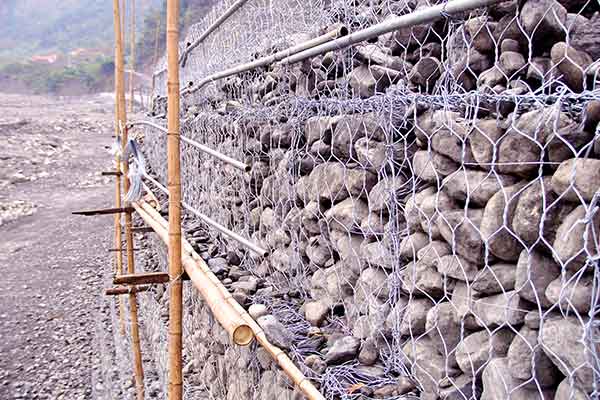What Are the Benefits of a Gabion Wall?
Gabion walls are becoming an increasingly popular choice for landscaping, civil engineering, and erosion control projects. Constructed using wire mesh cages filled with rocks, stones, or other materials, gabion walls are both practical and visually appealing. But what exactly makes them a good choice? In this article, we’ll explore the top benefits of gabion walls and why they are worth considering for your next project.

1. Excellent Erosion Control
One of the most significant advantages of gabion walls is their ability to prevent soil erosion. The structure allows water to pass through while holding back soil and debris, making it an ideal solution for areas with unstable slopes, riverbanks, or coastal zones. The permeability of gabions helps reduce water pressure and improve drainage.
2. Strong and Durable
Gabion walls are known for their strength and durability. The combination of high-quality wire mesh and heavy stone fill creates a robust structure that can withstand harsh weather conditions, including heavy rain, flooding, and freeze-thaw cycles. Over time, the wall becomes even stronger as vegetation grows between the stones, reinforcing the structure naturally.
3. Environmentally Friendly
Gabion walls are considered an eco-friendly solution. They use natural, locally sourced materials and allow plant life to grow through the gaps, which promotes biodiversity. Additionally, the modular design requires little or no concrete, reducing the carbon footprint of construction projects.
4. Low Maintenance
Compared to traditional retaining walls, gabion walls are very low maintenance. They don’t require painting, waterproofing, or complex upkeep. Once installed, they can last for decades with minimal attention, even in extreme environments.
5. Cost-Effective
When it comes to cost-efficiency, gabion walls are a smart choice. The materials—wire mesh and rock fill—are typically affordable and often available locally. Plus, the simple construction process means lower labor costs and faster installation times.
6. Flexible and Adaptive
Gabion walls are flexible in both design and function. They can be used for various applications, including:
- Retaining walls
- Noise barriers
- Landscape features
- Flood protection
- Decorative fencing
Their modular nature allows them to conform to uneven terrain, making them suitable for custom designs and challenging sites.
7. Aesthetic Appeal
Modern gabion walls are not just functional—they can also be visually striking. Designers and homeowners often use different types of stone or combine gabions with wood, glass, or greenery to create unique architectural features that blend with natural surroundings.
Final Thoughts
Gabion walls offer a wide range of benefits, from structural strength and erosion control to aesthetic value and environmental sustainability. Whether you’re working on a civil engineering project, creating a garden feature, or needing a durable retaining wall, gabion systems provide a practical and attractive solution.

